How to keep firm control of your remote devices—and keep hackers away
Let’s face it: If you can’t maintain control of your remote devices, some cyber-attacker will take control sooner or later. And when they do, learning stops.
Although always a worry, this has become a bigger concern for schools over the past year. During that time, they underwent digital transformations to provide educators with the tools they need to create learning experiences that are the same regardless of where the learning is taking place.
As part of that transformation, schools are loaning out laptops, Chromebooks, and tablets to students and teachers for remote learning. This is great for educational continuity, but not so good for maintaining control and security over those devices.
By loaning out those devices, you temporarily give up physical control of them. It becomes incumbent on the users to download and install the critical security updates issued in response to increasingly sophisticated hacking attacks. (Not to mention administering the routine software patches and preventive maintenance needed to keep the device running.)
Unfortunately, often users don’t do that. Even worse, one study revealed that 46% of schools have students or staff who circumvent their devices’ security features.
The result: The global education sector saw a 20% increase in cyber-attacks last fall as criminals exploited newly implemented virtual learning environments.
So how can you fix this problem before it becomes a full-blown catastrophe when your remote devices aren’t even on your network? How can you provide the care and security updates needed if you have no control over the device? How do you ensure the devices are functional for continued learning?
Many schools trust Absolute Resilience® software, which creates a self-healing connection that keeps critical applications installed, healthy, and up-to-date.
Lenovo is committed to supporting educational continuity, no matter where the classroom is. So we’ve built Absolute into the BIOS of all Lenovo devices as part of our layered approach to security, ThinkShield. This gives you visibility and seamless, flexible control over all your Lenovo devices, regardless of age or origin, from moment one without any additional work needed from your already overtaxed IT team.
Together, Absolute and Lenovo give you the digital technology necessary for educational continuity for the modern classroom.
The costs of a cyber-intrusion
The liability that unsecured devices pose goes beyond the device itself. If a cyber-attacker covertly infiltrates a vulnerable device, then when the device is next connected to a home or school network, the hacker can gain access to private student data, financial information, and even health records that can be exploited for financial gain.
Furthermore, the same lateral movement by the threat actor might also allow access to the ecosystem that can be used to lock, steal, and/or delete apps and data.
Preventing this intrusion even when the device isn’t on your school network requires a robust security solution with plenty of automation for lean IT teams to leverage. A comprehensive solution should include antivirus compliance, detailed device data reporting, and the ability to run an endpoint data discovery scan for sensitive data. It should have a scripting engine to push applications, change device settings, and enable the downloading of critical updates.
Of course, you also want a solution that is tamper-proof and always on, so it should have persistence (meaning it’s unstoppable) and resilience to thwart attempts to disable, uninstall, or work around the solution.
Absolute provides all of these capabilities—and more.
The Absolute advantage
Absolute maintains vigilance over the device’s other security and control apps to make sure they’re working as they should be. If they aren’t, Absolute automatically heals them, ensuring those mission-critical controls remain healthy and undeletable—all because of Absolute’s Persistence® technology embedded in the BIOS of Lenovo devices.
The scripting engine allows IT teams to easily create scripts to push updates on any endpoint, even those off the school network. When a device connects to any network, it will automatically check for new scripts and send a device status.
While there’s no such thing as “unhackable,” Absolute and ThinkShield prevent bad actors from removing protections from the device and replacing them with their own programs or hiding them in the background. Having this persistence agent directly sitting at the hardware level makes hacking as difficult as possible—turning a straightforward attack on a fractured target into something nearer to mission impossible.
To learn best practices for maintaining control over your remote devices and see how other educators are using Absolute software to ensure educational continuity, check out our Device Management and Security playbook, part of Lenovo’s educational continuity resources.
Don’t waste another cent on unused software licenses
A 2019 study found that 67% of educational software product licenses go unused. In some schools, that number jumps to 90%. Which brings up the question: What’s your educational organization’s percent of unused licenses? If it’s 1%, it’s too much. Every cent you spend...



